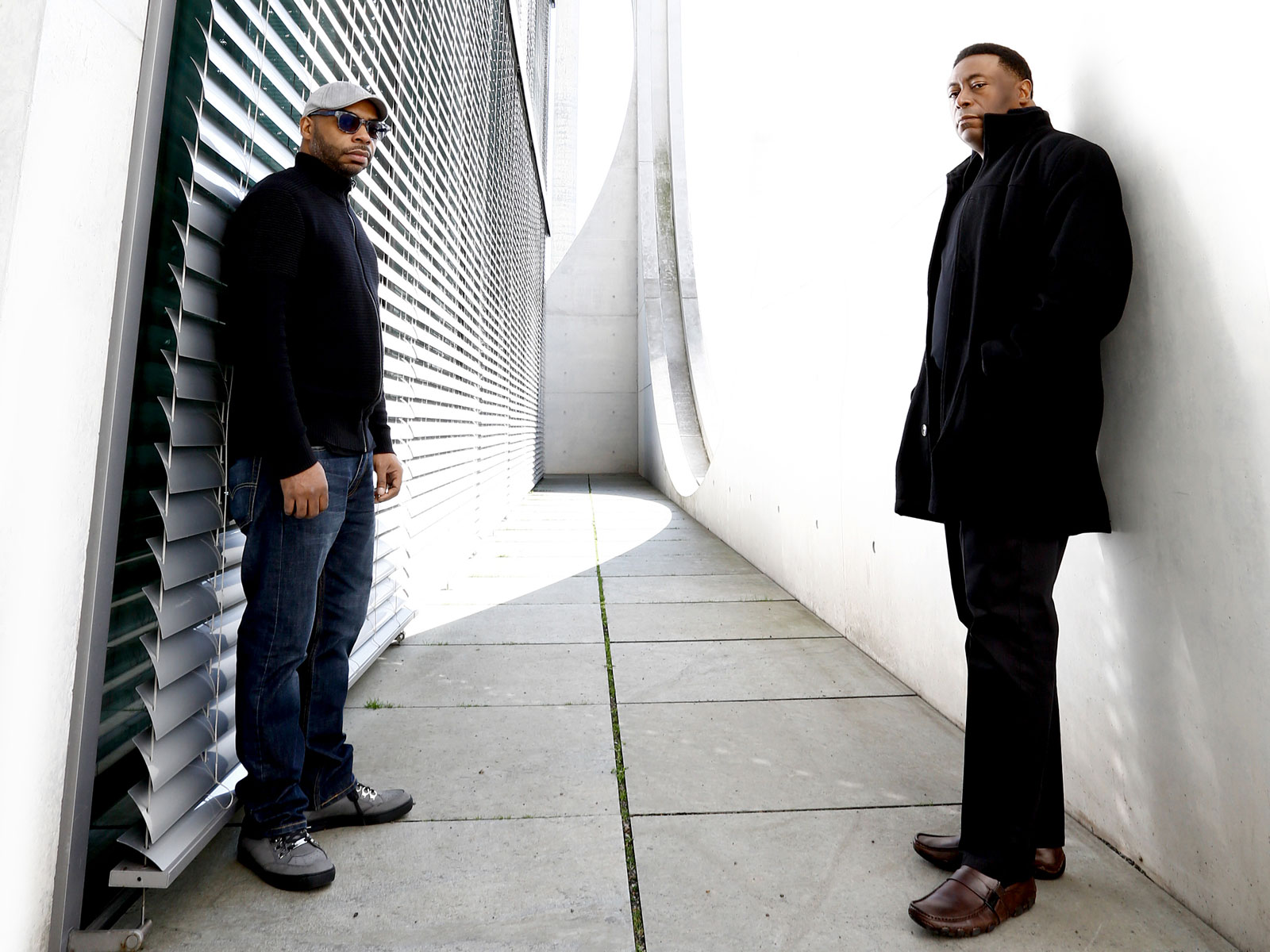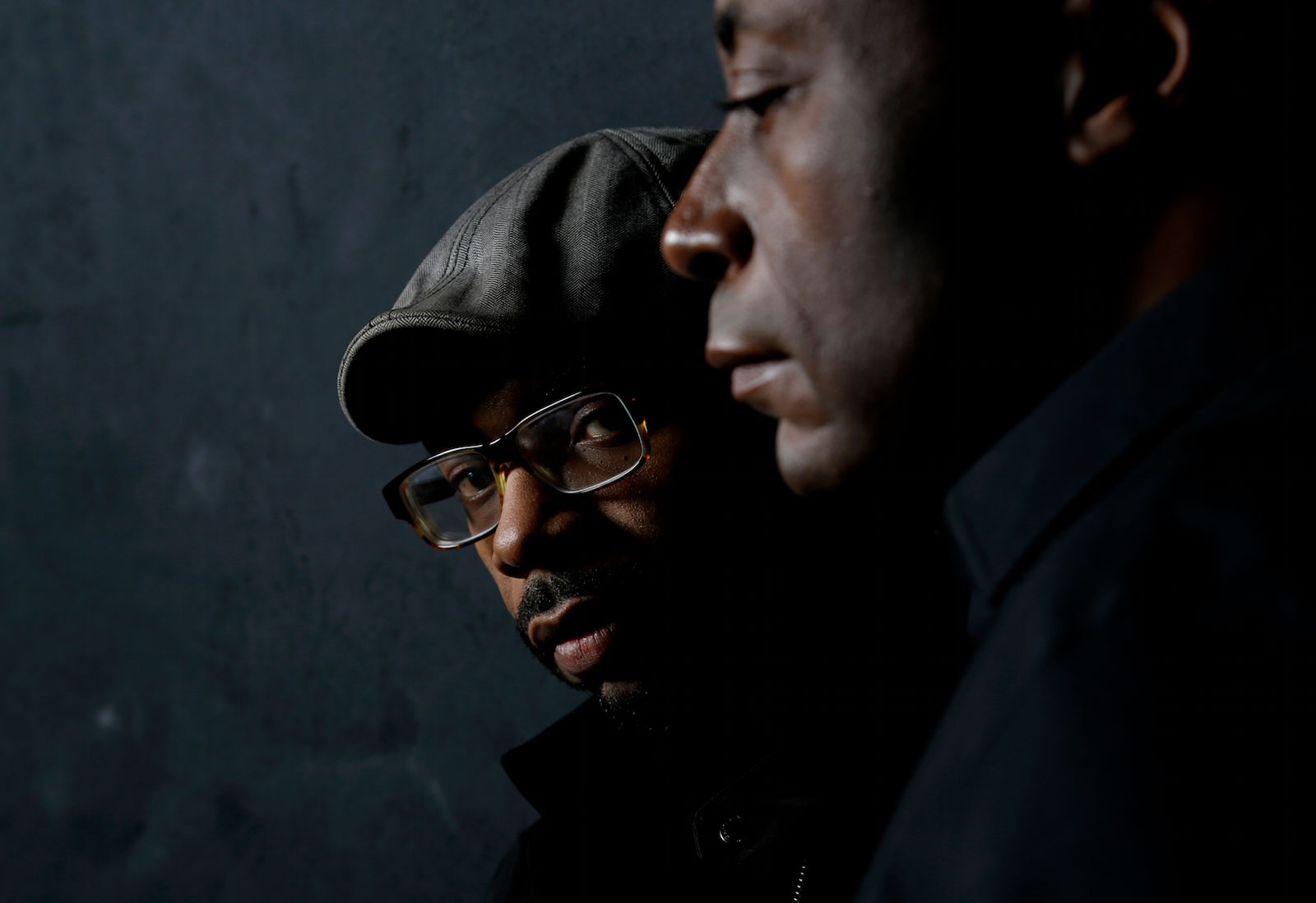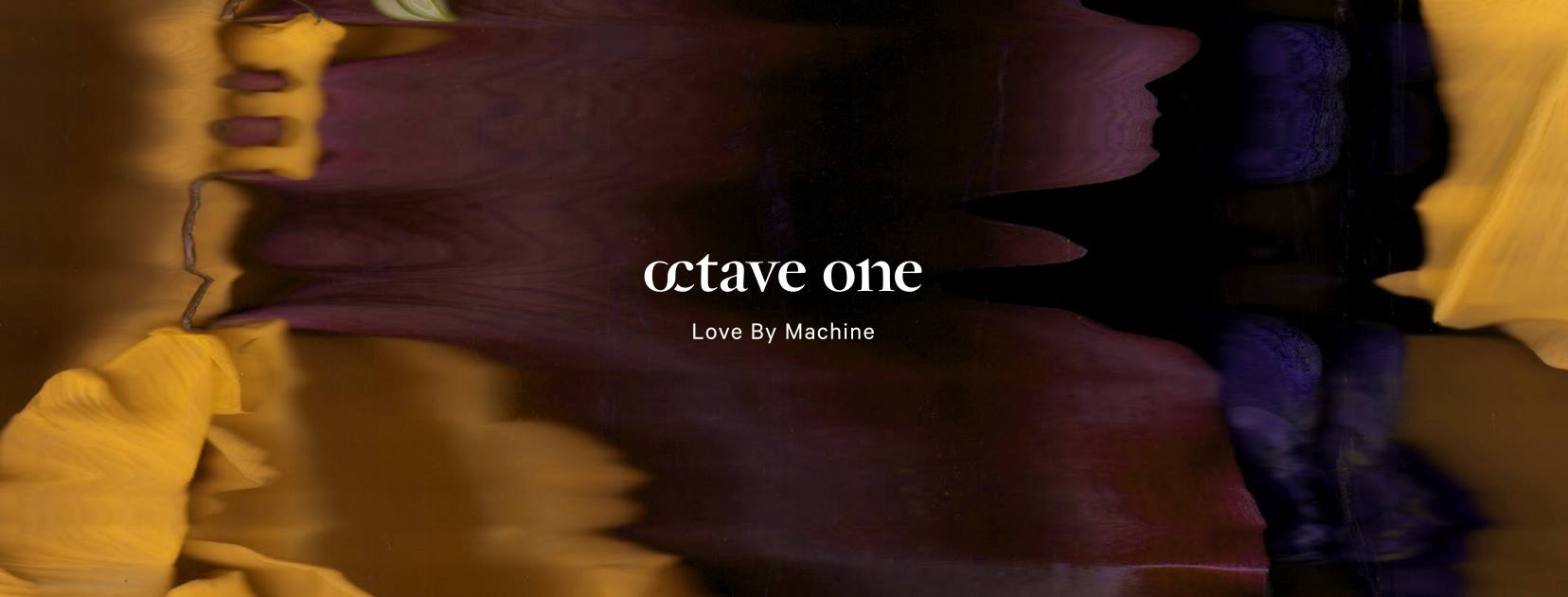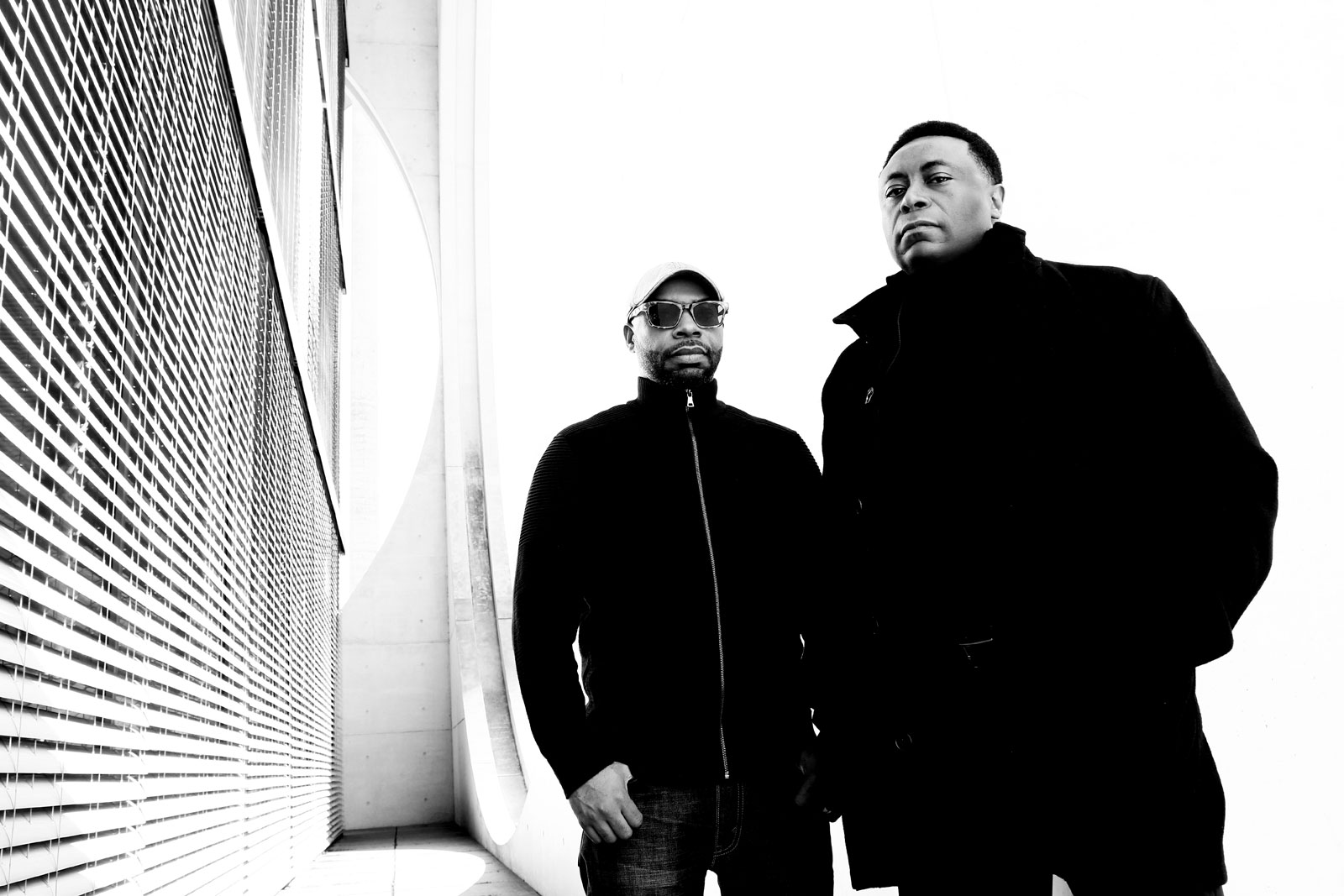Octave One Will Always Be Music Lovers First & Foremost
 Thirsty for JUICE content? Quench your cravings on our Instagram, TikTok and WhatsApp
Thirsty for JUICE content? Quench your cravings on our Instagram, TikTok and WhatsApp
Hours before their first show in Kuala Lumpur at Kyo KL as presented by Red Bull Music Academy, JUICE got real chatty with brothers Lenny and Lawrence Burden of techno duo Octave One – let’s just say these guys have a lot to say. With a career that spans over decades in a genre that comes and goes like waves, the Burden brothers opened up about going back to their roots both sonically and technically. Jam-packed with passion in their craft as well as their genuine love for music, the guys didn’t shy away from their opinions on what they expect from other acts’ live shows, and we adore how real they keep it.
Images Marie Staggart
Detroit’s techno history runs deep. Being from the city, could you tell us what it was like in the early days?
Lawrence (L1) Wow, in the early days, we had like kinda techno families. It was a big family that broke off into a lot of smaller families. We had the guys down in techno corner, which was Gratiot and Riopelle. It was KMS Records on Gratiot. Around the corner of Riopelle, it was Metroplex Records on the bottom floor. And above it was Derrick May with Transmat Records. Yeah, so all were hanging out down there. I mean you’d run into all your boys like MK (Marc Kinchen), everybody!
Lenny (L2) Everybody.
L1 That’s where we met everybody, so it was just this sense of community. You start hanging out at certain people’s house, and you start jamming – that was more to the second generation. The first generation had their own headquarters and we would go down to the studios, either rent time or we were on their labels and they gave us time.
L2 A lot of jam sessions. It was never singular music where it was just a single producer making music, it was a group of us. I mean, we’ve had sessions where eight of us are in the room with synthesisers and drum machines making music. It was something that was very unique. We thought it was normal, but now it has become much more of a single producer kinda music, and maybe two guys? But back then it was more like a band. We would really learn from each other, and we learn a lot from each other. We have our own sound, but we learnt a lot of technical things from the other guys in Detroit. It was a lot of fun. None of us cared about making money, we didn’t think we could.
L1 We just wanted to create art.
L2 We were just making music.
“But with our music, it just landed in Europe and people gravitated [towards] purity. They didn’t care about pushed records.” – Lawrence
For a genre that emerged from Detroit, United States, it feels like it’s more Eurocentric and more popular anywhere else but the Americas. Why do you feel America-born sounds like techno and house aren’t as big in its place of birth?
L1 Well, I think for a time it was kinda big in Detroit. But it was not plucked from the city, but it was introduced into Europe and it was totally a new sound for everybody.
L2 It became commercially acceptable. We had pockets in Detroit where we were all fans; tons of fans of the music in the actual city but a lot of people don’t really get how the United States is set up because each state is like a country. It’s huge! So for something to actually go across the entire country, you gotta have a lot of money. There has to be some sort of corporation who can exploit it to make money from it, and it was never the case for this music. In Europe, the countries are a lot smaller and then there was a lot of underground clubs that started to pop up then embraced the music, hence why it could spread faster. Basically, the divisions in Europe actually made it easier to spread because it was smaller pockets. In the U.S., it was just so spread out, so a lot of the talents started doing a lot of travelling to Europe and things like that. It was just a much more receptive market.
L1 Where we come from, it would take USD300k to promote a record. You gotta pay off all the DJs, that’s why hip hop and r’n’b were so big because they had all these big machines behind them, and as soon as they drop into the market you might’ve hated the record the first three times you heard it and then the fourth time, you’d start humming. It’s because they’re paying all these DJs to play it over and over again till you get it. But with our music, it just landed in Europe and people gravitated [towards] purity. They didn’t care about pushed records – I don’t really want to be a snob – but it was like, “Hey I like this record, I’m a DJ, I’m gonna play it.”
Considering the lack of a ‘big’ machine behind the kind of music you guys do, is its prominence beyond the underground something you think about?
L2 We’ve been doing this for a long time. This genre is gonna be around for a long time. It goes more proper sometimes, other times it goes underground. But it’s been around since the mid ’80s and it’s just like waves.
L1 Yeah, it comes and goes.
L2 It depends on what’s going on in the market at the time but we’ve been constantly doing this non-stop for a long time. There are a lot of guys like us, so we don’t really have to rely where the market is going we just kinda stay steady and do our thing.

“We don’t have the option of sometimes doing a DJ show or sometimes doing a live show, this is all we do. We wanted to be good at this and it took sacrifice.” – Lenny
You guys are famous for your live shows. The majority of shows for dance/electronic genres are DJ sets, even in a festival setting. Do you guys feel like the live side of electronic music is missing?
L2 There are a lot of people doing electronic live music! The thing about it is, we’re kinda unique because we have figured out how to do a lot of clubs and festival shows, which is the same type of setup, and it’s very difficult. But we’ve kinda figured out how to do it. A lot of people kinda reserve their live (sets) for bigger clubs and maybe the festivals. We just kinda do it like how a band would – so [with] bands, they kinda groom themselves in smaller clubs and even when they try to do new music, they’d go to smaller clubs before they hit the big places. So, our philosophy is different: We don’t think of live shows as our big show – live show is what we do. We don’t have the option of sometimes doing a DJ show or sometimes doing a live show, this is all we do. We wanted to be good at this and it took sacrifice.
We read you guys average about 70 shows a year – being gear heads with that much equipment, how do you deal with wear and tear issues? Ever thought of streamlining it?
L2 This actually is streamlined. Anything that is essential – that we positively need – we have two of. You might not see it up on the stage right now, but it’s in the bags. We have backups of all the essential equipment. Once again, while we’re out, we’re repairing things. We just came in from Australia, playing back in the bush and it was dust all over the place and all over the equipment, so I had to take the equipment apart, lay it out in the hotel room and clean it. Open it up on the inside, get all the dust out – these are just things you gotta do. We lose knobs all the time. The equipment gets banged up, some guy spills beer on something, these things happen. You just kinda roll with it and you understand that these things are gonna happen. Don’t get too upset; fix the problem, then keep going.
You guys play piano, a variety of horns, and drums – ever thought of doing a live show incorporating these instruments alongside the MPCs, keyboard controller, and such?
L1 Actually we kinda did. We played with the Tonhalle Orchester Zürich. It was a solo artist from the orchestra.
L2 So we had a string section, we had horns, we had all these things and it was done maybe two years ago. We incorporated musicians that are much better than us (laughs), and we had the opportunity to get ourselves interpretive from high-end pianists and things like that. We’ve done a lot of things [like that] even with our record ‘Black Water’, it’s an orchestra on it – those are real string sections and things like that. We’ve done it many times.

Lawrence, you said that with you’re the recent album Love By Machine, you guys wanted to make the record like how you used to before having had more ‘sophisticated’ machines. What’s the difference between how you recorded music back then versus now with newer technology?
L1 I tell you, we went back to the original. What you see on stage is what we did in the studio. So we didn’t record everything separately and track each instrument. What we did was just like how we do it on stage. We put something in to record it, then we hit play and start working. That was it. That’s how we used to do it.
L2 Before we didn’t have multi-track; we didn’t have ProTools. One thing we had was two tracks, so it was the left and the right. What you do is you just mix everything real time. Now with ProTools, you can do eight individual instruments in the computer, you can tweak each one forever! We just kinda got lost into tweaking tracks, [so] we re-thought and went back to our original process, how we used to make records. Threw the mixer up, plugged the equipment up, and we just started recording. Down to the left and the right, and that’s how we finished the new album. We haven’t done that in 15 – 18 years. That’s what we’re really talking about, getting back to our roots, how we used to make records. It’s like one take, in and out, that’s it.
L1 You mess up, you do it again (laughs).
“We became masters of equipment out of necessity.” – Lenny
Now, a whole track can be made using just a laptop and a DAW software. As gearheads, what do you make of today’s relatively hardware-less music-making?
L1 I mean, it’s cool for some; we don’t knock it. It’s just that when we were introduced into dance music, we came in with hardware. If we were to come in with software computers, that would be something different – but those things didn’t exist when we came in. It was like, “Hey, you work for six months, you buy a drum machine. You work for another six months, you buy synths.” So, that’s the difference than now. Now, you get a laptop and a software and that’s everything you need. It’s just like that (snaps fingers).
L2 For us, we had to save and buy something so you’d learn everything you possibly can about that one piece [of hardware] because it takes you a long time to buy it. It’s also gonna take you a long period of time to buy another piece and you learn everything about that piece. We became masters of equipment out of necessity as opposed to, “Let me pop out some plugins and have some really cool pre-sets, and I can just start from there.” We had to become masters of equipment that we could afford to buy because it was so hard to buy and it was so expensive.
Lenny, you said the album’s about the illusion of connection technology gives to humans. There’s a lot of closeness and love when experiencing dance music on the dancefloor, does ‘love by machine’ also refer to the kind of intimacy electronic music induce in listeners too? Or is that also the illusion you spoke of?
L2 Oh no that’s not the illusion, that was really the community. It was a community that made it, it wasn’t an individual. It was a community that listened to it, it wasn’t a pair of headphones, it was a club! It was the interaction! It wasn’t just listening to it through the computer. It was something that brought us together, and what we found out is that a lot of intimacy is a singular experience as opposed to a community experience. Cause music is really community music. Someone could be sitting forever on a computer and just looking at videos and listening to files, you feel like you’re so connected because you can be talking to this person from Finland and also talking to this person here and there, but we are in the same room! That was the connection, and technology is becoming a barrier. You think you are so much more connected because now you’re connected to the entire world, but you’re not really communicating. It’s your fake self, not your real self. It’s your avatar (laughs). So it reflects that intimacy that you get when you’re in a group because it’s what music is originally supposed to do, it’s supposed to bring us together. All different creeds, different colours, different genres. It’s like a room of a lot of people where our real connection point is the music – that might have been all we had that really brought us together but it was such a special moment; we forgot about anything else that divided us.

You guys have varied taste, from r’n’b to deep soul to industrial. Could you tell us an album or an artiste that influenced Octave One which would surprise fans?
Both Wow.
L1 We listen to so much stuff.
L2 Rage Against the Machine. Man, I’m trynna think of what else cause we listen to so much stuff!
L1 We go from country music to… people would be surprised.
L2 Dolly Parton!
“Your musical diet should not just be a few genres, it should be all over the place.” – Lenny
I’m surprised.
L2 That’s the thing about making music, you should not only be influenced by limited genres. You should definitely not be like, “I listen only to techno and I make techno. I only make house so I only listen to house.”
L1 For me that’s like only eating one food. Like I only eat spinach, or I only eat steak.
L2 All you can do is regurgitate what you’ve already heard; you can’t bring influences in. We are lovers of music first before we even found the talent to make it. We were deep lovers of music first and I mean everything – Sesame Street records – everything! (Laughs) Our influences are very diverse and a lot of it may surprise you but of course we listen to techno, but that was not the first thing that influenced us to make these records.
L1 Sergio Mendes, and all kinds of stuffs.
L2 There are things we listen to that we don’t even know the names of, we just play the track over and over again (laughs). Your musical diet should not just be a few genres, it should be all over the place. Music is such a universal language.
L1 Yeah, cause even when we came into the scene, there were no techno DJs, there were no house DJs, it was just a DJ and he played a bunch of hot tracks!
L2 If it fits your set, it fits your set.
L1 Music somehow became segregated. You’d go to the club and that DJ was just moving the floor all night. He took you up, he took you down, y’know? Wherever you wanted to go. Now it’s like ‘techno club’, or ‘techno DJ’. I was shocked when I heard ‘techno DJ’. I was like, “What’s a techno DJ?” And I didn’t know I was classified as one.
Why split your music identities between Octave One and Random Noise Generation?
L2 It was really simple in the beginning. Octave One was the first thing we did, it was our pure synthesis, it was us developing new sounds, it was us going for something totally original. With Random Noise Generation, we were sampling records. The simplest thing we could tell you is that we were going in and twisting samples and stuffs. Sometimes it’d be very obvious, sometimes it wasn’t. But back then, there was a distinction, but now there isn’t. Back then, if I was creating music from other people’s music, I don’t want people to confuse that with my pure music.
Finally, as performers, you guys know what you want to give the audience, but when you’re part of the audience, what do you look for from a performer?
L2 I want them to seem as if they’re actually interested in what they’re doing. Not that they’re just here because somebody booked them or it’s their obligation. I would like for them to bring me into the music and it doesn’t necessarily have to be some great dance or whatever, I just want to be able to feel in some way connected to that person who’s playing that music.
L1 It’s pretty much the same. I need to feel it! I always go by feeling; you gotta groove. I need to feel whatever you’re doing. I don’t need to see the jock, there’s a lot of clubs back in the day where you couldn’t even see the DJ! The DJ might be in a little box with a hole in the window.
L2 How they were playing that music made you feel connected. Even if there were a lot of mistakes, you’d feel like you were part of something special that was only happening that night. It wasn’t just a visual thing…
L1 Pointing fingers in the air (laughs).
L2 No, it was something that you felt.
L1 That’s not giving me a feeling. I don’t even understand what does that do, but y’know…
L2 I mean you can tell when a deejay or artist is moving a crowd. You can’t see them, but you can feel it. A lot of the disconnection we feel now is that it’s not really interacting with the crowd – we’re looking for something to feel.
Presented by Red Bull Music Academy, Octave One played Kyo KL on Friday 17 March ’17.
Stay updated on Octave One’s shows and song releases here.

 Get Audio+
Get Audio+ Hot FM
Hot FM Kool 101
Kool 101 Eight FM
Eight FM Fly FM
Fly FM Molek FM
Molek FM